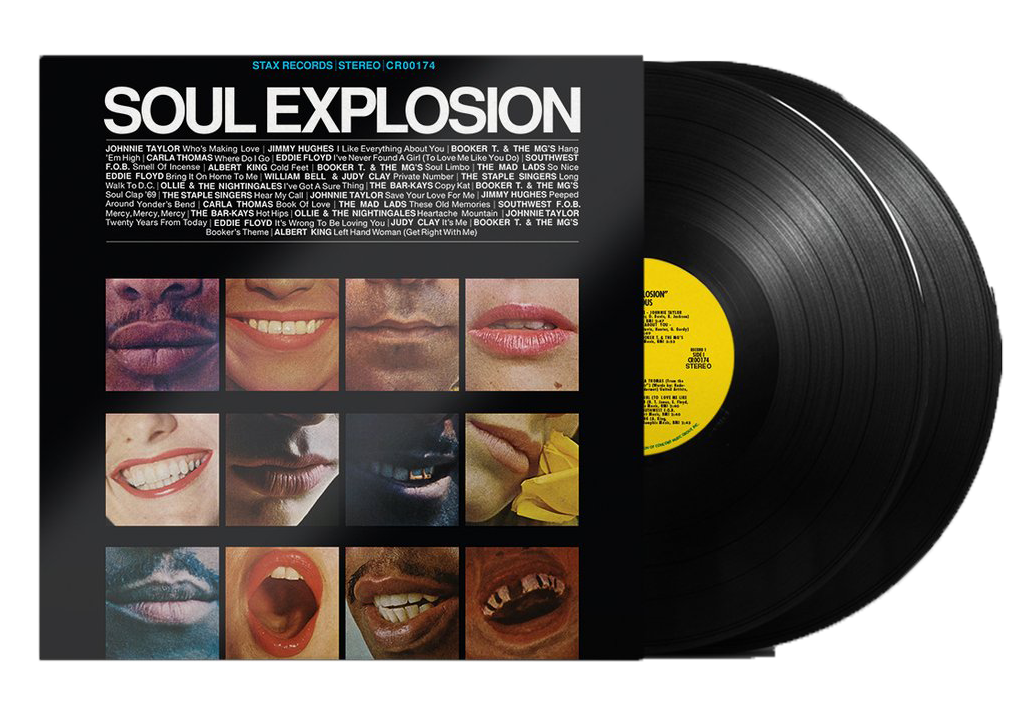Stax Songwriter Series
Eddie Floyd and Steve Cropper
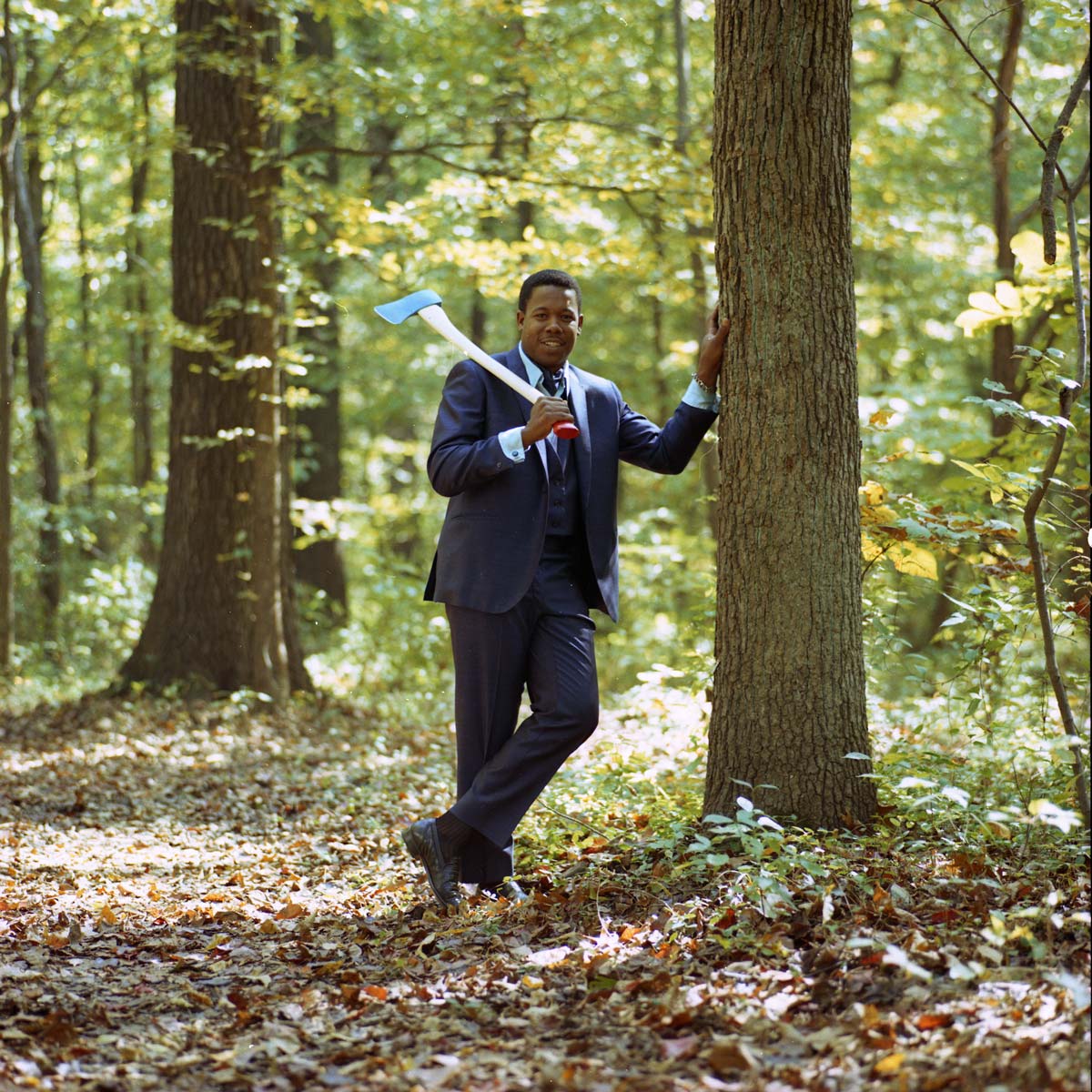
Eddie Floyd
Among Stax Records’ most recognizable hit singles, Eddie Floyd’s “Knock on Wood” enjoys an everlasting commercial ubiquity. The song, penned by Floyd and Steve Cropper, was released as a single in 1967 and effectively cemented Floyd in the pantheon of soul music after he toiled for years as a journeyman in the genre.
Born in Montgomery, Alabama, Floyd’s family moved to Detroit when he was an infant. There, Floyd’s uncle, Robert West, worked at the helm of pioneering soul labels LuPine and Flick Records. In his earliest recording ventures, Floyd garnered reasonably quick success as a founding member of the doo-wop group The Falcons, an outfit comprised of astounding male vocalists, many of whom continued with solo success. The group’s singles “You’re So Fine” and “I Found a Love” made waves in 1959 and 1962, respectively. The latter included backing vocals from The Primettes, the Detroit female group that would evolve into popular Motown act, The Supremes.
Following the departure of The Falcons’ lead singer Joe Stubbs, Floyd would have a brief chance to step out front before Wilson Pickett entered the group’s ranks. However, shortly after Pickett would leave the group in the pursuit of success on his own, Floyd would do the same.
Staging a move to Washington, D.C., Floyd made the acquaintance of a local DJ named Al Bell and co-founded Safice Records with the charismatic jock. When Bell signed on as promotions director for Stax Records in Memphis, Tennessee, Floyd also came aboard. He’d initially lend his talents as a songwriter.
At Stax, Floyd would soon meet frequent writing partner Steve Cropper. The guitarist had spent the early part of the 1960s planted firmly in the Stax family for several years, joining the label, studio, and record shop just after it opened in a discarded neighborhood theater on South Memphis’ McLemore Avenue.
Cropper, a native of a rural southern Missouri town called Dora, moved to Memphis as a small child. The young man fell in with a group of boys in his neighborhood and school who studied the intricacies of rhythm and blues music. The list of Cropper’s childhood peers, several of whom would go on to lead viable careers in rock and soul music, includes the likes of Charlie Freeman, Donald “Duck” Dunn, and Don Nix. Although he is perhaps not noted as the most prolific among these musicians, Charles “Packy” Axton proved himself as arguably the most influential of the teenagers in Cropper’s orbit. Axton connected the eager young players with his mother Estelle Axton and uncle Jim Stewart, co-owners of the fledgling label Satellite Records, which would soon become Stax.
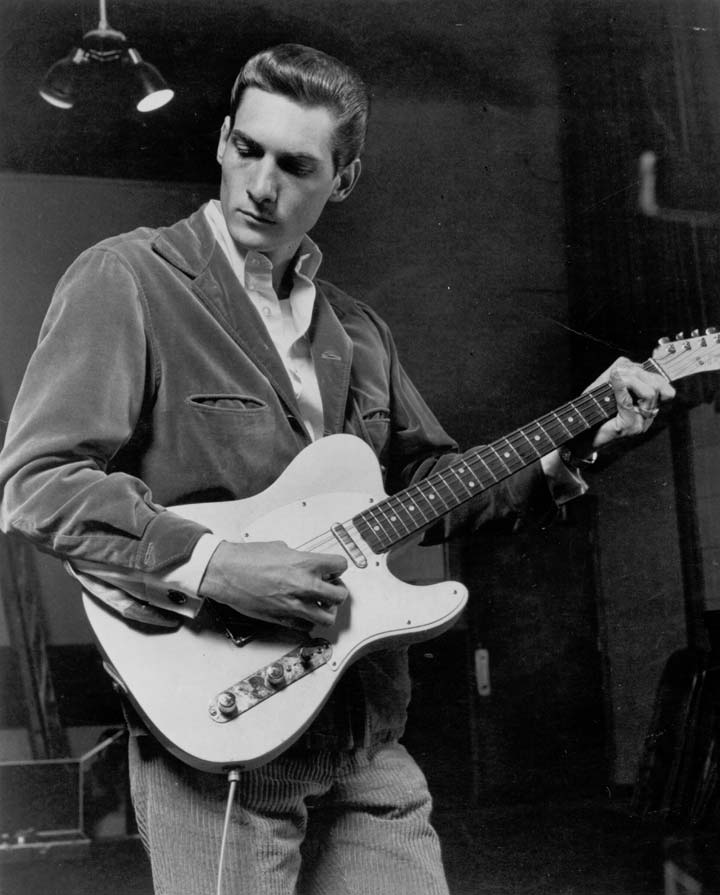
Steve Cropper
Cropper joined “Packy” Axton and his other boyhood friends to form The Mar-Keys. Together, they’d strike a nearly immediate hit with “Last Night,” in 1961. The song’s success in the southeast prompted the rag-tag collective of musicians to step out onto the road, an endeavor that Cropper would quickly grow to lament. Before long, he’d returned to Memphis to focus on in-studio production at Stax, a job he’d secure after producer-engineer Chips Moman decided to leave and develop his own studio.
Inadvertently, Cropper’s oversight in the studio found him playing guitar alongside keyboardist Booker T. Jones, drummer Al Jackson, Jr., and bassist Lewie Steinberg for a session that resulted in an impromptu jam committed to tape. The song, which was released as the single “Green Onions,” would be credited to Booker T. & The MG’s, and the side spent little time making a meteoric impact on the rhythm and blues market. Released in 1962, the instrumental hit charted at #3 on Billboard’s top R&B songs list. Cropper’s longtime friend and bandmate “Duck” Dunn soon replaced Steinberg on bass, as the group’s profile increased in support of the single.
When Cropper met Floyd, shortly after making a home in Memphis, Stax’s leadership assigned the two musicians to be songwriting partners. Nearly immediately, the pair penned the smash hit that would define their time together.
Having previously worked together on Carla Thomas’ “Comfort Me” and Wilson Pickett’s “634-5789,” the two men joined forces in a 1966 writing session at Memphis’ Lorraine Motel, hoping to leave with a song fit for emerging star Otis Redding. The meeting resulted in “Knock on Wood,” a title prompted by notions of a love so good that one might turn to superstition to keep the romance alive. Looking outside their window at a raging storm, Floyd and Cropper added the refrain, “It’s like thunder, lightning, the way you love me is frightening.” An American soul classic was solidified, and instead of Redding, Floyd stepped up to perform the single himself.
Dismayed by the song’s melodic and rhythmic similarities to Wilson Pickett’s “In the Midnight Hour” (also co-written by Steve Cropper), Jim Stewart’s offered unsatisfactory reception to the composition. Following Floyd’s recording of “Knock on Wood,” the song sat on the shelf for several months, before Al Bell’s interest in it opened up the opportunity for promotional singles to be prepared and distributed to select jockeys. Bell worked the record throughout the Mid-Atlantic, focusing on Baltimore and D.C., coaxing its popularity throughout the rest of the country. Once it inevitably caught fire, the record earned Floyd a gold-certified single. Along with that accolade, “Knock on Wood” climbed to the top of the US R&B chart and found a home in the top 30 of the pop chart.

Eddie Floyd
Cropper and Floyd’s list of significant works together includes Otis Redding’s “Don’t Mess With Cupid,” Johnnie Taylor’s “Just the One I’ve Been Looking For,” Sam & Dave’s “I Got Everything I Need,” and Floyd’s own early Stax performance, “Things Get Better (When I’m With You).”
Within the larger stable of Stax creatives, both Cropper and Floyd also found success writing with others. Cropper regularly made hits with Otis Redding, while also penning many of Booker T. & The MG’s hits in collaboration with his fellow group members. Floyd, naturally, wrote regularly with Al Bell, with whom he’d traveled to Memphis to join the company. He also co-wrote frequently with Booker T. Jones and Joe Shamwell.
“Knock on Wood” remains one of Stax Records’ most covered songs, including a version released by Otis Redding and Carla Thomas for their 1967 duets collection “King & Queen.” Floyd’s former bandmate Wilson Pickett recorded his take on the song in the same year. The song returned to the pop charts with the help of David Bowie in 1974 and Amii Stewart in 1979.
– Jared Boyd
The Songwriters Series ARCHIVE

Frederick Knight
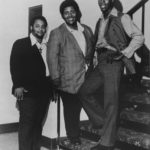
Rance Allen

The Mad Lads

Carl Hampton and Homer Banks

Eddie Floyd and Al Bell

William Bell and Booker T. Jones
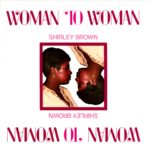
Eddie Marion, James Banks, and Henderson Thigpen

We Three (Bettye Crutcher, Raymond Jackson & Homer Banks)

Eddie Floyd and Steve Cropper
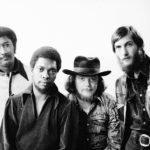
Booker T & the M.G.’s

Steve Cropper and Otis Redding


